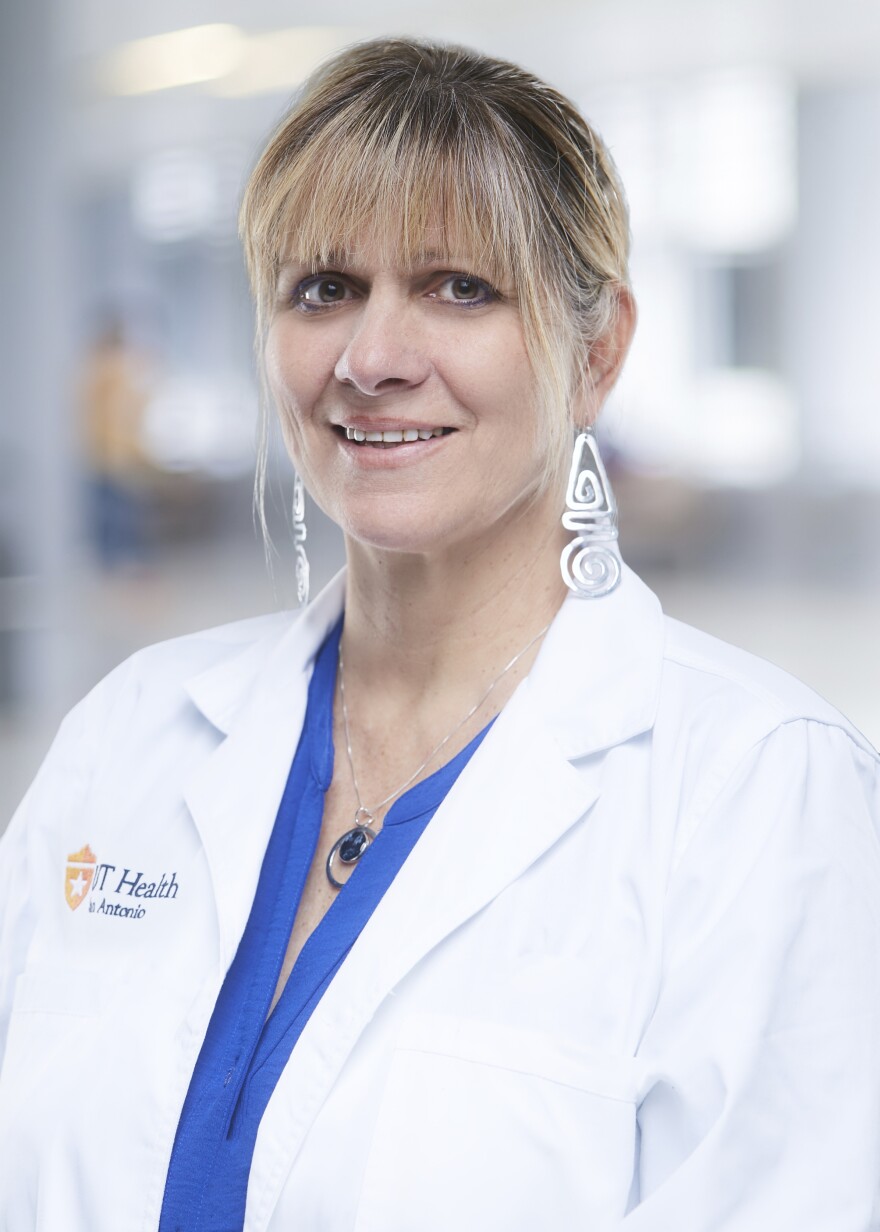Do you ever think about all that’s involved in just swallowing a bit of breakfast taco or a sip of coffee?
“It’s one of the most complex neuro motor tasks that a human being can do. And it all occurs in under a second. So it is way more complicated than walking or moving your arms," said Professor Giselle Carnaby, a speech pathologist and public health scientist who directs the PhD in Health Sciences program at UT Health San Antonio.
She founded the Swallowing and Upper Aerodigestive Research Laboratory, where she’s doing a study to determine whether an exercise-based program focused on swallowing could help people with early Parkinson’s disease maintain their abilities for longer.
“So we challenge the system with materials that are a little bit above what it's capable of, and we push them hard and we push them fast, and we get them to really use the mechanism in dynamic ways to keep it fit.” she said. “It's about swallow fitness.”
This intervention was adapted from a therapy originally developed to help people recovering from stroke, but rather than help Parkinson’s patients recover abilities that have already been lost, Carnaby hopes to help delay the deterioration in the first place.
Because once the ability to swallow starts to deteriorate, people lose much more than the ability to eat easily.

“If you can't eat or if you have a problem swallowing that makes you embarrassed. You can't eat with your loved ones. You can't enjoy a meal. You might have to sequester yourself away when you eat, or you might need special foods that make you feel less,” she said. “So we know there's social isolation, and we know that there's interactive and communicative reductions that occur from having a problem with your eating and drinking.”
Carnaby said feedback from people in the study, so far, is great.
“The information we're getting from our Parkinson's patients at the moment is they are loving this. This is just giving them another avenue to strengthen their ability to fight against this progressive disease process,” she said.
About 20 million adults in the U.S. have a swallowing disorder.
Science & Medicine is a collaboration between TPR and The University of Texas Health Science Center at San Antonio, about how scientific discovery in San Antonio advances the way medicine is practiced everywhere.



